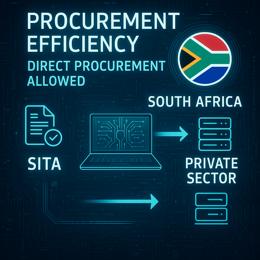Image created by AI
SIU Set to Conclude Probe into Parliament Upgrades by March Amidst Allegations of Financial Misconduct
In a significant stride towards transparency and accountability, the Special Investigating Unit (SIU) has its sights set on completing a thorough investigation by March next year concerning numerous irregularities associated with the upgrades to the parliamentary precinct and residential accommodations. This investigation crowns a series of inquiries underscoring the challenges in governance relating to the expenditure of public funds.
The focus of the SIU's probe includes the irregular awarding of contracts, significant budget overruns, and substandard workmanship concerning contracts valued at over one billion rand. This investigation expands to the aftermath of a devastating fire that ravaged the Parliament’s National Assembly Chamber and adjacent offices, although refurbishments in other areas had commenced prior to the incident.
On a detailed review presented to Parliament's Public Works Committee, the SIU disclosed ongoing investigations into the department’s prestigious portfolio, highlighting preliminary findings that suggest possible mismanagement of substantial funds allocated for both office and residential refurbishments.
Among the infrastructures scrutinized is a facility known as 90 Plein, which saw the emergence of new offices and meeting rooms erected for political parties, costing about R25 million. However, this project, along with others including the R519 million office refurbishments and R506 million used for upgrades at Parliamentary villages, has been marred by claims of procurement and financial irregularities.
Leonard Lekgetho, the SIU Chief Operating Officer, emphasized the operational challenges they've battled, primarily due to uncooperative stakeholders including the former director general of the department. Further complicating the investigations have been the frequent managerial shifts overseeing these so-called prestige contracts, which stymied the investigative momentum.
The expected conclusion of this investigation by March next year represents a crucial juncture for governance and could serve as a beacon for more stringent regulatory oversight in public sector contracts. It stresses the necessity for an improved cooperative framework amongst government departments and highlights the crucial role vigilant oversight agencies play in safeguarding public resources against mismanagement and corruption.










